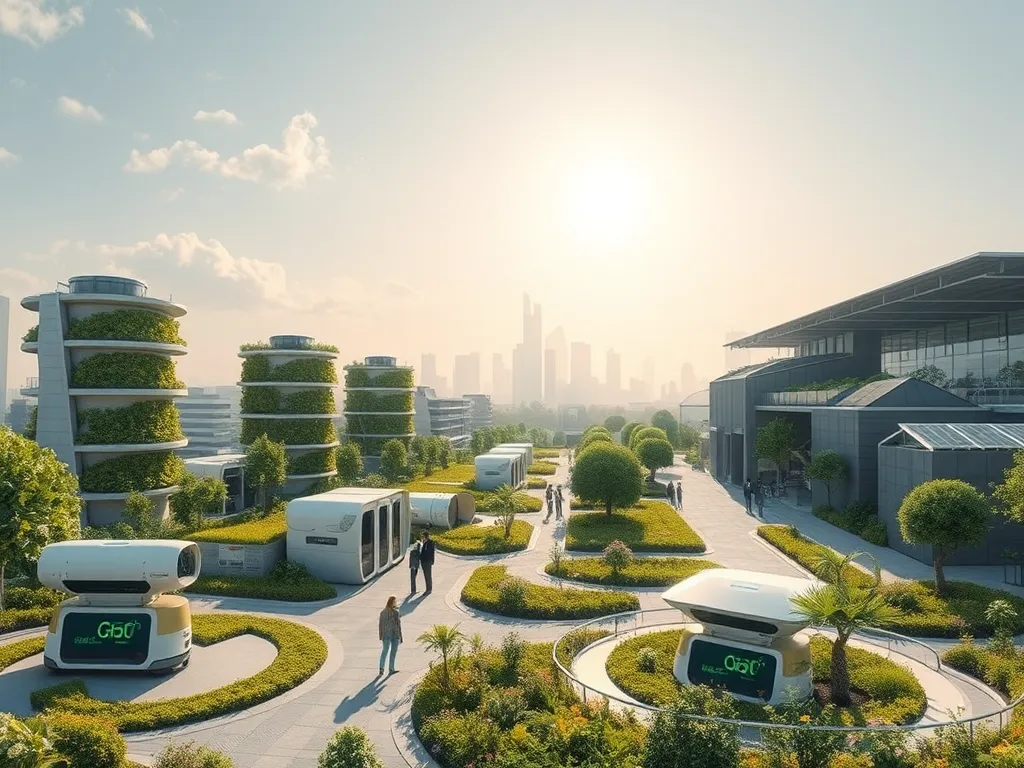Innovative Solutions for Future Waste Management Strategies

Future Waste Management: Transforming Our Approach to Waste
Future waste management is a critical area of focus as the world faces escalating waste generation and environmental challenges. The way we manage waste today is unsustainable, and there is an urgent need to rethink our strategies to protect our planet for future generations. Innovative technologies, sustainable practices, and effective policies will play a vital role in shaping more efficient and effective waste management systems.
Understanding the complexities of waste management can be enhanced by exploring this insightful resource: what a waste - an updated look into the future of solid waste management.
In the realm of future waste management, advanced technologies such as artificial intelligence, machine learning, and the Internet of Things are poised to revolutionize how waste is sorted, collected, and processed. By leveraging these technologies, we can enhance recycling rates, minimize landfill use, and promote sustainable waste disposal practices. Comprehensive education and community engagement will also be essential in cultivating a culture of sustainability and responsibility toward waste management.
One of the key aspects of future waste management is the shift toward a circular economy, where waste is minimized and resources are reused and recycled to the maximum extent possible. This approach will not only reduce the environmental impact of waste but also create economic opportunities by turning waste into a resource. Emphasizing composting, organic waste solutions, and reducing dependency on single-use plastics will be integral to this transformation.
Furthermore, policies and regulations at international, national, and local levels will be crucial in guiding waste management practices. Governments will need to implement strict regulations to limit waste generation, promote recycling programs, and foster collaboration among stakeholders. By supporting initiatives that promote sustainable waste management, society can create a robust framework for reducing waste responsibly.
Lastly, public awareness and education are essential components in the future of waste management. Engaging communities in waste reduction efforts, educating citizens on recycling programs, and harnessing the power of social media to raise awareness will create a more informed public that is committed to responsible waste management. Together, these strategies will pave the way for a more sustainable future.
Technological Advancements in Waste Management
AI and machine learning are playing a revolutionary role in waste sorting processes, enabling the identification and separation of different types of waste materials. This not only enhances recycling efficiency but also reduces human error and labor costs associated with manual sorting. The integration of these intelligent systems can significantly streamline waste management operations, leading to improved recycling rates and lesser waste sent to landfills.
Smart bins equipped with sensors and IoT technology can optimize waste collection by providing real-time data on fill levels and contamination. This enables waste management companies to deploy collection trucks only when necessary, reducing fuel consumption and operational costs. These innovations enhance the efficiency of waste collection processes, reducing ecological footprints and resulting in better urban waste management systems.
Automation in recycling processes is gaining attention as a key driver for efficient waste management in the future. Robotic systems can handle repetitive tasks, such as sorting recyclable materials, which increases processing speeds and reduces labor costs. Additionally, automated recycling facilities can scan and process materials with precision, ensuring a higher purity of recyclables that can be sent back into the production cycle.
Sustainable Practices in Waste Management
Composting and organic waste solutions represent an essential component of sustainable waste management. By diverting food waste and other organic materials from landfills, composting not only reduces greenhouse gas emissions but also creates nutrient-rich soil amendments for agriculture and landscaping. Future waste management will need to incorporate robust composting programs that educate the public on how to compost at home.
The principles of a circular economy advocate for sustainable practices in waste management that minimize waste and keep resources in use for as long as possible. By designing products for longevity, repairability, and recyclability, we can reduce the demand for new materials and limit waste generation. Future waste management systems will need to focus on integrating circular economy principles into production, consumption, and waste practices.
Zero waste initiatives in communities aim to minimize waste generation by promoting reuse, recycling, and composting. Future waste management strategies will rely heavily on grassroots movements that engage citizens in reducing waste at the source. By fostering a culture of sustainability, these initiatives can significantly decrease the total amount of waste generated, leading to cleaner and more sustainable communities.
Policy and Regulation for Waste Management
Government regulations play a crucial role in waste reduction efforts by establishing guidelines for waste management practices and enforcing penalties for non-compliance. Future waste management will need to focus on creating policies that drive innovation and compliance while supporting sustainable practices. Regulations must adapt to the evolving waste landscape and prioritize reducing plastic pollution and increasing recycling rates.
International agreements on waste management, such as the Basel Convention, aim to regulate the transboundary movement of hazardous waste and promote environmentally sound management of waste. Future collaboration among countries will be vital in addressing global waste challenges and promoting best practices. These agreements can encourage nations to share knowledge and resources to combat waste management issues effectively.
Local policies promoting recycling programs serve as a foundation for effective waste management at the community level. Future waste management strategies will need to incentivize recycling through programs that reward citizens for their participation. Additionally, local governments can implement educational campaigns aimed at increasing awareness and participation in recycling initiatives, ultimately leading to higher recycling rates.
Public Awareness and Education
Community engagement in waste reduction is critical for the success of future waste management initiatives. Involving residents in local cleanup events, recycling drives, and educational workshops can foster a sense of responsibility and encourage sustainable practices. Communities that actively participate in waste reduction efforts can inspire collective action that drives significant change.
Programs for educating the public about recycling are essential to improving participation and effectiveness of recycling efforts. Future initiatives must provide clear and accessible information on what can and cannot be recycled, as well as the importance of proper sorting. Schools, community centers, and local governments should collaborate to create comprehensive educational campaigns that reach diverse demographics.
The impact of social media on waste management awareness is immense, as social platforms allow individuals and organizations to share best practices, tips, and success stories. Future waste management campaigns can harness social media's reach to engage younger audiences and foster a culture of environmental stewardship. By promoting awareness through digital platforms, communities can create a more interconnected network dedicated to waste management solutions.
Future Trends in Waste Management
Emerging technologies in waste reduction, such as advanced recycling processes and biodegradable materials, will play a key role in reshaping how society manages waste. Innovations such as chemical recycling, which breaks down plastic waste into its original components, and the use of bioplastics will significantly reduce the environmental impact of traditional materials. Future waste management systems must integrate these technologies to drive down waste generation effectively.
Predictions for changes in waste generation highlight the need for proactive waste management solutions. As global populations continue to grow and consumption patterns evolve, waste generation is expected to rise. Future waste management must focus on designing for waste reduction, improving recycling rates, and developing new materials to limit the overall volume of waste created. Forward-thinking policies and community engagement are necessary to address these challenges.
The role of waste management in climate action cannot be overstated. By reducing waste, improving recycling rates, and promoting circular economy practices, waste management can significantly contribute to climate change mitigation. Future waste management strategies will need to align with climate goals, ensuring that community practices and policies support sustainable development and environmental protection.
